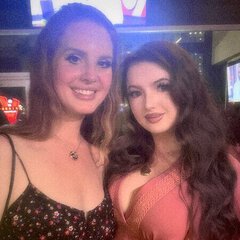
Blue Banisters - Post-Release Discussion Thread + Poll
By
Elle, in Post-Release Threads
Blue Banisters
900 members have voted
-
1. What are your favourite tracks from Blue Banisters?
-
Text Book240
-
Blue Banisters278
-
Arcadia266
-
Interlude - The Trio138
-
Black Bathing Suit495
-
If You Lie Down With Me431
-
Beautiful181
-
Violets for Roses280
-
Dealer467
-
Thunder481
-
Wildflower Wildfire334
-
Nectar of the Gods282
-
Living Legend323
-
Cherry Blossom231
-
Sweet Carolina264
-
-
Recently Browsing 0 members
No registered users viewing this page.
